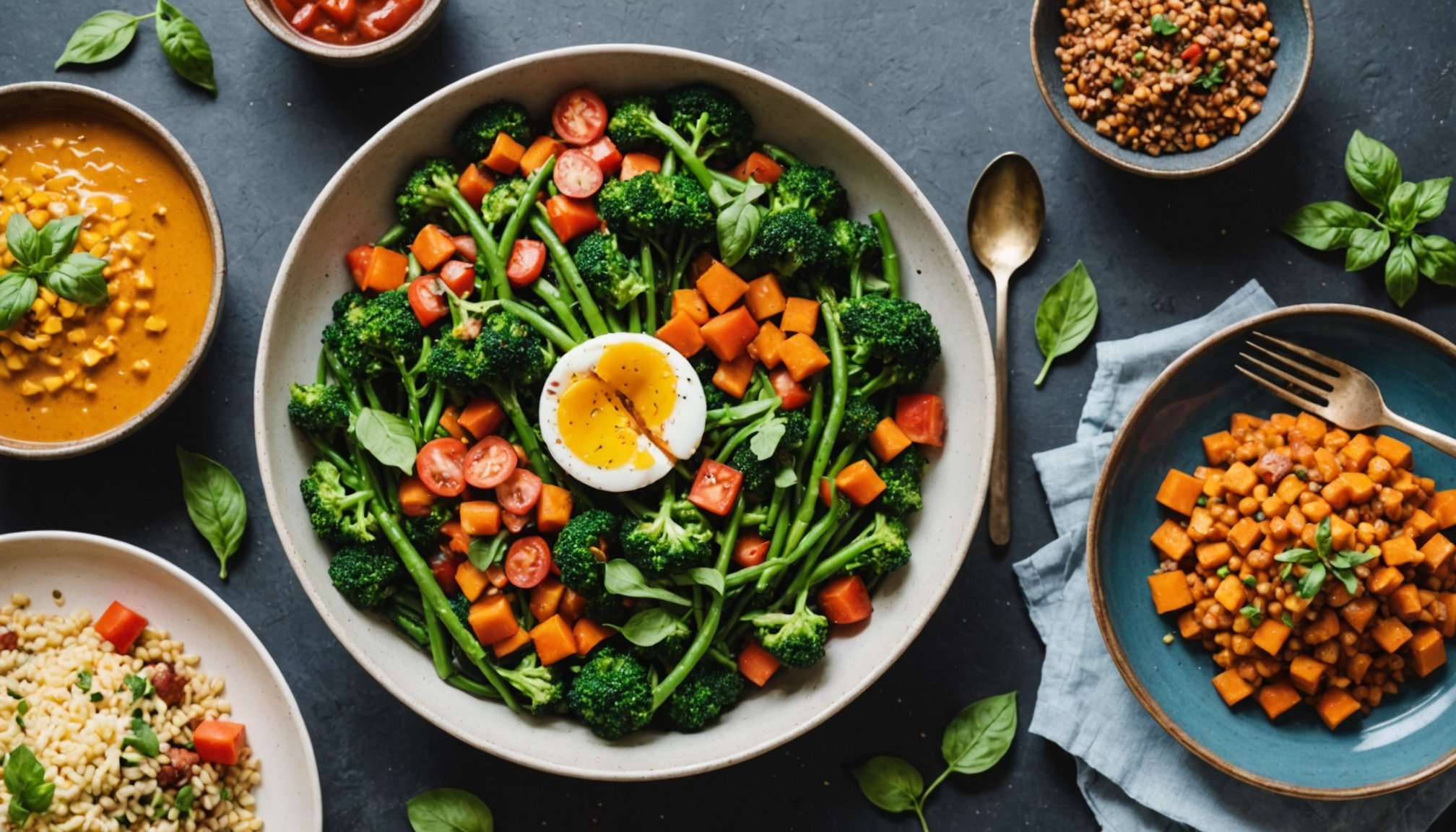As the demand for healthier and more sustainable eating habits grows, many people are exploring the benefits of a plant-based diet. Incorporating more plant-based meals into your cooking routine can be a rewarding journey toward better health and environmental responsibility. This article will guide you through practical ways to make this transition seamless, delicious, and enjoyable. Whether you’re a seasoned vegan or just starting to dip your toes into plant-based eating, you’ll find valuable insights and easy recipes that suit your lifestyle.
Understanding Plant-Based Eating
To effectively incorporate more plant-based meals into your cooking, it’s crucial to first understand what this type of eating entails. Plant-based eating primarily focuses on foods derived from plants, including fruits, vegetables, whole grains, legumes, nuts, and seeds. While some might associate it solely with vegan diets, it can also include small amounts of animal products.
In the same genre : What are the considerations for integrating a dining area into a small kitchen?
A plant-based diet is rich in nutrients, providing the body with essential vitamins, minerals, and antioxidants that support overall health. Research shows that increasing your plant-based food intake can lower the risk of chronic diseases such as heart disease, diabetes, and obesity. Additionally, plant-based diets tend to be lower in calories and high in dietary fiber, promoting better digestion and satiety.
When transitioning to more plant-based meals, consider your current dietary habits. Are there specific foods you enjoy that can be easily replaced or adapted? Perhaps you love pasta or stir-fries, which can be made deliciously vegan with simple tweaks. Replacing meat with legumes or tofu can provide the necessary protein while maintaining the flavors you love. This flexibility makes it easier to integrate plant-based options into your daily meals.
Also read : How can I incorporate cultural dishes into my kitchen repertoire?
Easy Plant-Based Recipes for Every Meal
One of the best ways to start incorporating more plant-based meals is by exploring a variety of recipes that are both satisfying and easy to prepare. Here are a few simple meal ideas to get you started:
-
Breakfast: A hearty smoothie bowl made with bananas, spinach, almond milk, and a scoop of plant-based protein powder. Top it with your choice of granola, seeds, and fresh fruit for added texture and flavor.
-
Lunch: A colorful salad featuring mixed greens, cherry tomatoes, cucumber, bell peppers, chickpeas, and a creamy tahini dressing. This meal is not only filling but also packed with essential nutrients.
-
Dinner: Try a tofu stir-fry using a variety of vegetables like broccoli, carrots, and snap peas, sautéed in soy sauce or teriyaki sauce. Serve it over brown rice or quinoa for a wholesome meal.
-
Snacks: Whip up some roasted chickpeas or energy balls made from oats, nut butter, and dates. These make perfect snacks for when you’re on the go.
Each of these recipes is designed to be adaptable. You can easily swap out ingredients based on what you have on hand or your personal preferences. Experimenting with different spices and herbs will also enhance the flavors of your plant-based meals.
Meal Planning for Plant-Based Diets
Effective meal planning can significantly ease the transition to a more plant-based cooking routine. By dedicating some time each week to plan your meals, you can reduce food waste and ensure you have all the necessary ingredients on hand.
Start by creating a meal plan for the week. Choose a few plant-based recipes to try, and make a shopping list of the ingredients required. Focus on versatile foods that can be used in multiple dishes. For instance, a batch of roasted vegetables can be used as a side dish, added to salads, or blended into a soup.
Consider batch-cooking grains like quinoa or brown rice at the beginning of the week. These can be easily stored and used as a base for various meals throughout the week. Additionally, prepare snacks in advance, such as hummus with carrot sticks or nut bars, to keep you energized and satisfied between meals.
Finally, don’t forget to embrace seasonal produce. Purchasing foods that are in season not only supports local farmers but also ensures that you’re getting the freshest and most flavorful options. This approach to meal planning will help you enjoy a diverse range of plant-based meals without becoming repetitive or boring.
Overcoming Challenges in Plant-Based Cooking
Transitioning to a plant-based diet can come with its challenges, especially if you are accustomed to traditional cooking methods or specific meals. One common hurdle is ensuring adequate protein intake. Many people worry that eliminating meat will lead to deficiencies. However, plant-based diets can be rich in protein through sources like lentils, beans, quinoa, nuts, and tofu. Incorporating a variety of these ingredients into your meals will easily meet your protein needs.
Another challenge might be the perception that plant-based cooking is time-consuming or complicated. In reality, many plant-based recipes are straightforward and quick to prepare. Embrace one-pot meals or easy recipes that require minimal preparation. As you become more comfortable in the kitchen, you will find that cooking plant-based can be just as quick and easy as any other cooking style.
Lastly, social situations can present difficulties when sticking to a plant-based diet. It’s helpful to communicate your dietary preferences with friends and family ahead of time. Offer to bring a plant-based dish to gatherings, ensuring there’s something for you to enjoy. Over time, people will become more accustomed to your diet, making it easier to navigate social events.
The Long-Term Benefits of a Plant-Based Diet
As you begin to incorporate more plant-based meals into your cooking routine, it’s important to reflect on the long-term benefits this change can bring. A plant-based diet is not only beneficial for personal health but also for the health of the planet. Studies indicate that reducing meat consumption can significantly lower greenhouse gas emissions and help conserve water and land resources.
On a personal level, individuals who adopt a plant-based diet often report increased energy levels, improved mood, and enhanced overall well-being. The abundance of vitamins, antioxidants, and healthy fats found in plant-based foods contributes to better physical health and cognitive function.
Moreover, as you expand your culinary skills with plant-based cooking, you will likely discover a whole new world of flavors and textures. The diversity of plant-based foods encourages experimentation, leading to a more adventurous approach to cooking and dining.
Ultimately, embracing a plant-based diet offers an opportunity for a healthier lifestyle and a chance to make a positive impact on the environment. By integrating more plant-based meals into your routine, you are investing in your health and the future of our planet.
Incorporating more plant-based meals into your cooking routine is a fulfilling journey that can enhance your health, creativity in the kitchen, and overall quality of life. By understanding the fundamentals of plant-based eating, exploring delicious recipes, planning your meals effectively, and overcoming challenges, you can seamlessly transition to a more sustainable diet. As you embrace the diversity of plant-based foods, remember that every small step counts. Whether it’s trying a new recipe or planning a week of meals, each effort brings you closer to a healthier, more vibrant lifestyle.











